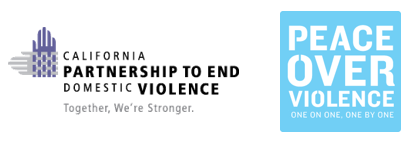Alleged murder of 16 year-old by ex-boyfriend illustrates crisis of adolescent dating abuse in California
Middle and high school policies urgently needed to prevent abuse, support healthy relationships
FOR IMMEDIATE RELEASE: August 29, 2016
Media Contacts:
- Jessica Merrill, Communications & Development Manager: jessica@cpedv.org | Work: (916) 444-7163, x118 | Cell: (707) 330-6838
- Britni Soto, Communications & Events Manager: britni@peaceoverviolence.org | (213) 955-9090 x 135
SACRAMENTO — 16 year-old Elena Lillian Moore’s life was cut short on August 12th after her ex-boyfriend, 17, allegedly stabbed her multiple times in her Pico Rivera home. As Moore’s mother called 911, she watched her die. This tragedy comes on the five-year anniversary of Cindi Santana’s death. Santana, who was 17 when she was killed by her ex-boyfriend, was stabbed on campus at South East High School. While both of these tragic events occurred in Los Angeles County, one in three teens between 14 and 20 has been subjected to abusive behavior nationwide.[1] Murder is the ultimate culmination of dating abuse, which often begins with controlling behavior, isolation, verbal and physical abuse. Any type of abuse must be taken seriously and addressed for us to prevent such tragedies from occurring again.
Both Elena Lillian Moore and Cindi Santana attended the same high school as their ex-boyfriends. Given that nearly half of students experiencing dating violence said that some of the abuse took place at school,[2] it is necessary for educational settings to enact school policies that require healthy relationship curricula, train staff on how to appropriately intervene when they witness abusive behavior, and provide clear campus-wide communication that abusive relationships will not be tolerated. Los Angeles Unified School District, where Santana was a student, has passed a resolution addressing teen dating abuse, but it has yet to be funded and implemented. El Rancho Unified School District, where Moore was a student at Ruben Salazar High School, was not available for comment on whether policies or procedures exist that address adolescent dating abuse.
Majority Leader Ian Calderon, who represents the 57th Assembly District, said, “Awareness and prevention are necessary in order to break the cycle of dating abuse and violence. It’s critical that we provide our youth with the support and guidance they need to be able to focus on their academic life while pursuing healthy relationships. This begins with creating a violence free culture both in and outside of campus.”
“Across our state and our country, students are recognizing the impact interpersonal violence plays on their lives, both in and out of school,” said Peace Over Violence Executive Director Patti Giggans. “While we have seen creeping change across our educational institutions, it must be rolled out more swiftly to meet the needs of students. Only through systemic, institutionalized change can we prevent acts of violence like this and move towards schools and adolescence free from abuse.”
Kathy Moore, Executive Director at the California Partnership to End Domestic Violence also expressed the need to create change: “At the Partnership, we are heartbroken over another preventable death of a young person,” said. “We know educators throughout our state want to nurture a safe environment where students can reach their full academic potential, but there are too many young people experiencing the trauma of dating abuse. They often feel afraid and alone, which leads to poor educational outcomes.[3] I hope California’s School Boards will do the right thing by supporting schools and students with policies that prevent this from occurring.”
Californians are encouraged to contact their School Board Members and urge them to review school policy recommendations from the Partnership, Peace Over Violence, and organizations throughout the state. For more information about adolescent dating abuse and what educators can do to prevent it, read the joint policy brief issued by the Partnership and the California School Boards Association.
About the Partnership
The California Partnership to End Domestic Violence (the Partnership) is California’s recognized domestic violence coalition, representing over 1,000 survivors, advocates, organizations and allied individuals across the state. Working at the local, state and national levels for nearly 40 years, the Partnership has a long track record of successfully passing over 200 pieces of legislation on behalf of domestic violence victims and their children. The Partnership believes that by sharing expertise, advocates and legislators can end domestic violence. Through our public policy, communications and capacity building programs, we create system-wide change that supports survivors and invests in prevention. Every day we inspire, inform and connect all those concerned with this issue, because together we’re stronger. With offices in Sacramento, the Partnership’s member programs span the entire state. For more information, visit www.cpedv.org.
About Peace Over Violence:
Peace Over Violence, (formerly LACAAW), established in 1971 by pioneering feminist activists, is a sexual and domestic violence, stalking, child abuse and youth violence prevention center headquartered in Los Angeles. POV is dedicated to building healthy relationships, families and communities free from sexual, domestic and interpersonal violence. One of the first agencies of its kind in the country, POV has been committed to social service, social change and social justice for 45 years. For more information, visit www.peaceoverviolence.org
# # #
[1] California School Boards Association, California Partnership to End Domestic Violence (2014). Promoting Healthy Relationships for Adolescents: Board Policy Considerations. p. 2.
[2] California School Boards Association, California Partnership to End Domestic Violence (2014). Promoting Healthy Relationships for Adolescents: Board Policy Considerations. p. 2.
[3] California School Boards Association, California Partnership to End Domestic Violence (2014). Promoting Healthy Relationships for Adolescents: Board Policy Considerations. p. 2.





